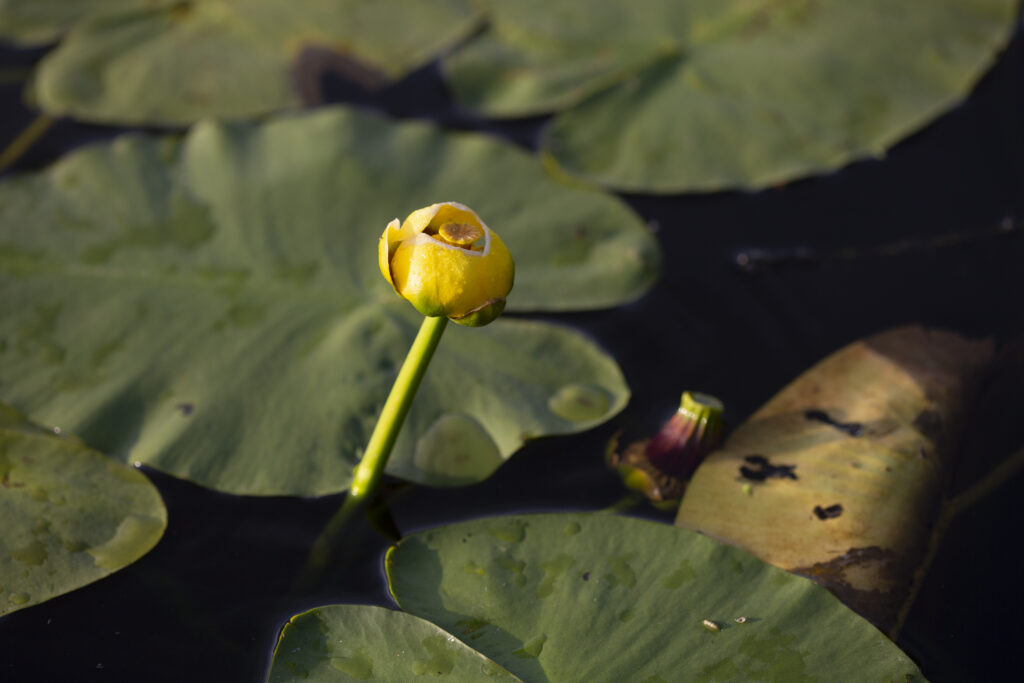
DISTRICT OF LAKELAND NO. 521
Serving Emma, Christopher, Anglin & McPhee Lakes, and a portion of the Boreal Forest Region.Environmental Bylaws and Environmental Plan
Healthy Shorelines
- Lakeshore Erosion
- Love Your Lake: Natural Edge Program
- Vacationland News: Shoring up our Shorelines
- Boat Wakes
- Video (NSRBC)
- Wetlands
Water Quality
- Water Quality Overview
- Yearly Water Quality Summaries
- You and Lake Water Quality
- FAQ’s
- Tips for Healthy Lakes and Recreation
Wildlife/Invasive Species
Fires in Lakeland
General Information & Resources
About the Committee/Contact Us
Wetlands
What is a wetland?
A wetland is any area that holds water either temporarily or permanently. Some wetlands hold water year-round while others may only hold water for one or two months each spring.
What do wetlands do?
As some of the world’s most productive ecosystems. Wetlands work hard for us, mostly behind the scenes. Here are just a few of the things wetlands do for us:
- provide many environmental services that contribute to human health and economic well being,
- function as natural water retention ponds, prevent flooding, filter and purify water, replenish and store groundwater, reduce erosion and protect shorelines,
- provide exceptional biodiversity,
- dependant by 1/3 of Canada’s species at risk, for all or part of their life cycle,
- will also play a crucial role in the future of climate change,
- hold twice the carbon found in the tropical forests of the world, while they occupy six per cent of the world’s land surface.

Why should I care?
Wetlands…
- are key to the lifecycles of waterfowl and other wildlife;
- moderate the effects of floods, droughts, climate change and erosion;
- filter our water and help provide clean, secure water sources;
- have the potential to remove and store greenhouse gases from the Earth’s atmosphere;
- offer tremendous recreation and learning opportunities for people of all ages; and
- are essential habitats for as many as 600 species of wildlife in Canada.
Unfortunately, wetlands are also one of the Earth’s most threatened ecosystems. Despite their value, up to 70 per cent of wetlands have been lost or degraded in Canada as a result of urbanization, agriculture and industrial expansion.
Once we lose a wetland, it’s really hard to get it back to its natural state. We have a variety of conservation programs designed to restore wetlands but the best thing we as Canadians can do is to prevent wetland loss in the first place.

Wetlands maintain and improve water quality.
Wetlands are mother nature’s kidneys—they filter pollutants such as nitrogen, phosphorus, pesticides, heavy metals, pathogens, and sediments out of the waters of our lakes, rivers, and streams. Wetlands trap many pollutants in runoff, protecting downstream atercourses from algal blooms and sedimentation. They are also very efficient in removing pathogens such as coliform bacteria from our water supply.
Wetlands are such effective water purifiers that constructed wetlands are commonly used in the tertiary treatment of industrial and municipal wastewater.